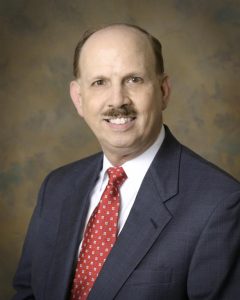The road to becoming a physician is paved with many unique challenges. The uphill battle begins with rigorous undergraduate course work, followed by the MCAT and medical school applications. Upon acceptance into medical school, the USMLE (United States Medical Licensing Examination) and its STEP 1 and STEP 2 exams provide another hurdle. At any of these stages, a student can be accused of numerous faults including cheating, misrepresentation, falsification of information, unfair advantages and the many faces of “irregular behavior.”
Today’s post focuses on the challenges imposed on a student prior to entering medical school. On Friday, the implications of various forms of “misconduct” for med students will be dissected (including USMLE irregular behavior and the case of NBME and FSMB v. Optima University LLC).
Prior to medical school, pre-med students must be ambitious, inquisitive and extra cautious about any disciplinary action. A minor blemish on a pre-med student’s academic record (from academic dishonesty or other accusations), will become a major red flag once that student begins the process of applying to med school. Not only will any kind of discipline record hinder a student’s chances of acceptance into med school, an infraction can also ruin that student’s reputation as they apply for residency and beyond.
Because the process of becoming a physician is difficult without having a discipline record, any charge against a pre-med student must be taken with the upmost seriousness. If a student is accused of any kind of inflammatory behavior (cheating, academic dishonesty, plagiarizing, misrepresentation of information, falsification of information, etc.) that student needs to immediately try to correct the accusation. If a professor or another student is responsible for the accusation, the accused can try to fix the situation by meeting with the accuser before it advances. However, if this fails and the complaint is taken to a higher administration, it is best for the student to consult a legal expert who can represent them in front of an academic committee.
Often, these cases can be resolved informally,through negotiation or mediation. However, occasionally it is necessary that a civil suit be filed against the school, in order to protect the reputation of the student and prevent retaliation. The student must discuss what legal route will work best for their case in order to have the best chances of a positive outcome.
If a pre-med student makes it through undergrad without any kind of discipline record, there is still a chance that something could go wrong during the MCAT, leading to an investigation by the AAMC (Association of American Medical Colleges).
In the event that a student is accused of cheating on the MCAT or disruptive behavior during the test administration resulted in a voided test, it is best for the student to seek legal representation. If a student takes no action, or fails to correct the situation independently, they may be banned from taking the MCAT and have no chance of entering medical school.
After surpassing each obstacle on the way to med school acceptance, students may still be presented with a challenge during the admissions process. Students attempting to be admitted to medical school who are wrongfully denied for various reasons, need to seek legal advice. In one case, a student who was a whistle blower found himself being the subject of retaliation by a medical school professor for whom he had worked in college. After seeking legal counsel, this student was successful in countering the retaliation of the medical school professor and was admitted to the medical school of his choice.
Becoming a physician may be challenging, but the results can be rewarding and worth any sacrifices. A clean slate during your days as a pre-med student will pay off during your medical school admissions cycle and beyond. For more information visit www.TheHealthLawFirm.com or read this article concerning Education Law.


